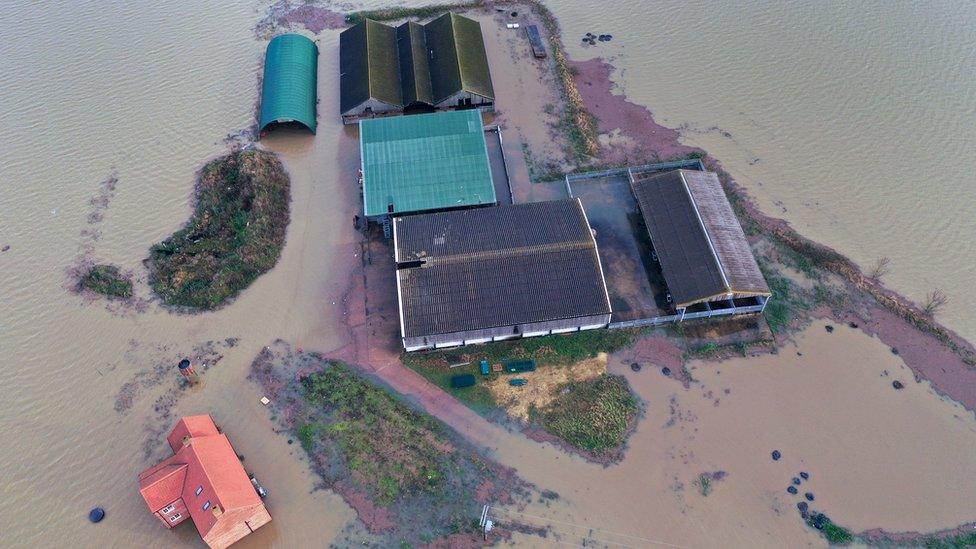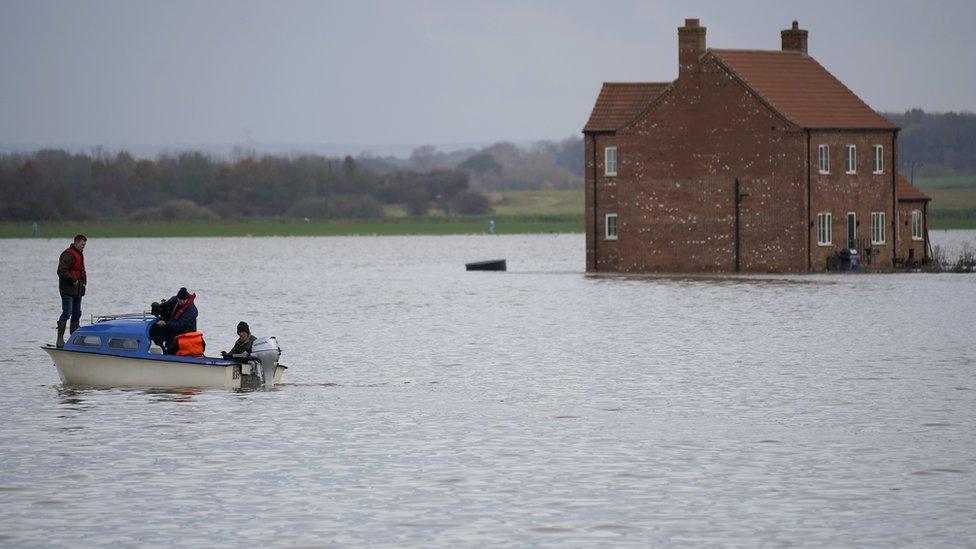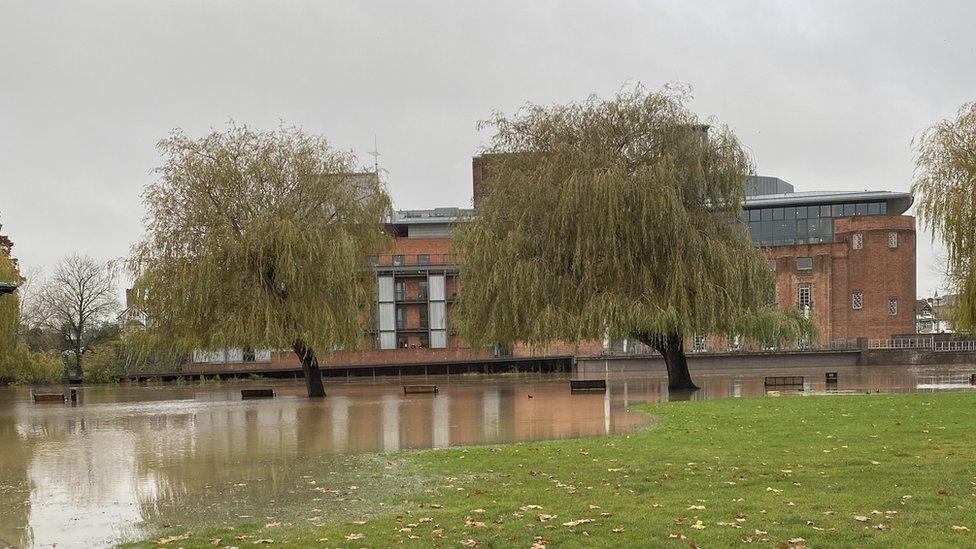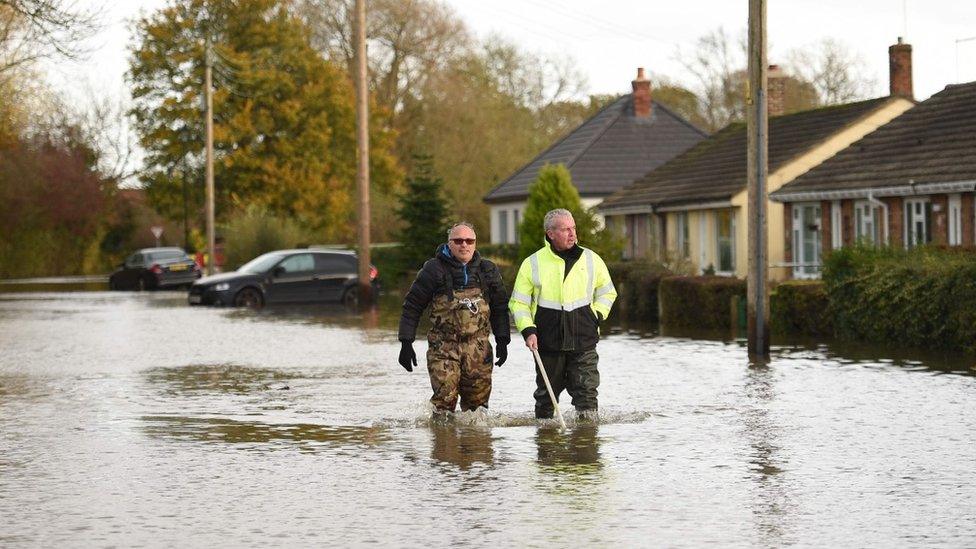Floods leave farmers with 'unprecedented costs'
- Published

A farm in Bardney, Lincolnshire, is among those hit by the recent floods
Widespread flooding has left some farmers in one of England's main crop-growing regions unable to sow seeds for wheat and barley crops.
Heavy rainfall in Yorkshire and the East Midlands "swamped thousands of acres of farmland at a crucial time", the National Farmers' Union (NFU) said.
It said 90% of the winter cereals was expected to be drilled in Lincolnshire, but only 10% had been done.
Thousands of homes and businesses have been flooded since 7 November.
A spokesperson for the NFU said farmers were facing "massive and unprecedented costs" because of the floods.
James Peck, from the NFU, said up to 10 inches of rain fell in some parts of Lincolnshire and Nottinghamshire, leaving fields waterlogged.
The current conditions means harvesting root vegetables and crops - including cabbage, broccoli and Brussels sprouts - has been difficult.

Swathes of farmland have been left under water in parts of Yorkshire and the Midlands
"Most arable farmers would have usually drilled all of their winter crops by now, but the relentless rain means some have been unable to drill anything," Mr Peck said.
"We also have some potato and vegetable growers who have their crops in the ground only for them to be inundated by floodwater.
"Sugar beet farmers are unable to get machinery on to the wet ground to lift sugar beet.
"While livestock farmers are being forced to bring in livestock earlier than normal, which means higher costs on-farm for feed and bedding."
Mr Peck added: "Rainfall on this scale exposes the vulnerability of farming businesses, the fragility of returns to farmers, their exposure to volatility - ultimately resulting in an impact on their bottom line."
- Published15 November 2019

- Published15 November 2019
